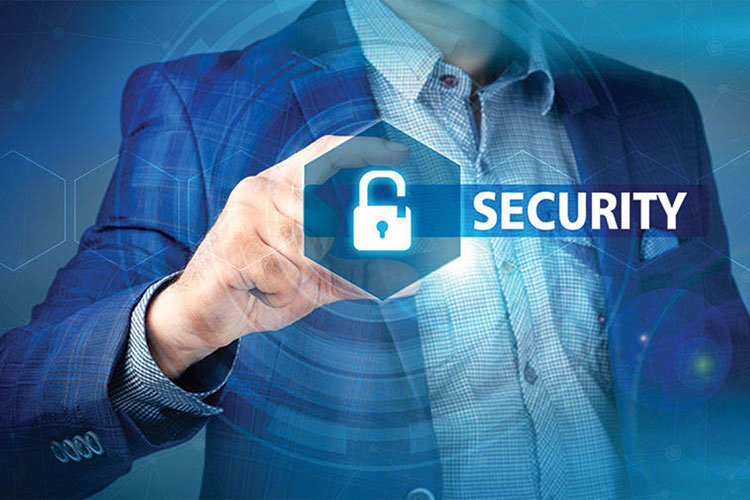

REM Times speaks to two industry experts to analyse how IoT can be used to enhance security services in properties
October 27, 2023 | Deepa Natarajan Lobo | UAE | PropTech

The role of technology in real estate cannot be understated. Right from searching of homes to streamlining of paperwork, tech is being used in every possible way by realtors, developers and home buyers to ease the entire process of property purchase. However, even a plush residence with state-of-the-art amenities could fall short if there is a lag in its security services.
With buildings and cities increasingly becoming smarter and technology advancing at a galloping pace, it’s crucial that security services of properties are cutting-edge as well. In fact, as per a study by Statistica, the smart home market amounted to $139 million in the first part of 2023 while according to Exploding Topics, there are approximately 15.14 billion IoT devices in the world today.
The two factors combined prove how essential it is for technology, more so internet of things (IoT), to be used in every aspect of the security system of properties – both residential and commercial. REM Times speaks to a leading manpower supplier and a trusted integrated FM services provider to learn more.
Several organisations are providing a comprehensive range of high-tech solutions that could be used to improve security – from smart sensors to advanced monitor systems. Concordia DMCC, an FM services provider that offers services like multi-vendor IoT management platform, intelligent security solution, intelligent safety solution, smart padlocks solution, smart parking solution to name a few, believes that IoT in smart buildings has the potential to significantly reduce operational costs, improve occupant comfort and safety, and contribute to sustainability goals.
Says Unmesh Basheer, Director Innovation & Technology Division, Concordia DMCC, “Functions like iris detection, face recognition, video analytics, video tampering, false alarms, intruder detection etc. can be done at an improved pace and accuracy with efficient IoT devices and sensors. These devices can also enhance access control systems by enabling multi-factor authentication and real-time identity verification. AI-powered IoT systems can sense security system storage failure at an early stage and send alarms to the users.”
Leading manpower supplier Transguard Group too offers solutions that encompass every aspect of security services such as site survey, conceptual design and implementation, testing and commissioning and even final regulatory approvals as per the UAE’s guidelines and regulations. “We have smart surveillance cameras with built-in security features such as motion detection, facial recognition and the ability to remotely monitor from smart devices. Our smart access control systems and locks can be configured to grant access to certain individuals and be monitored remotely, as well receive alerts,” says Adam Gerber, Senior Manager, Systems Integration, Transguard Group. “Our intrusion detection sensors sense motion for doors, windows, garage doors or any other entry points; while the smart perimeter monitor system detects unauthorised access around walls or fences and can be configured to trigger alarms to the security team. These are designed so that businesses and direct consumers can have the peace of mind knowing that their assets and people are protected at all times,” he adds.
From blockchains to real-time monitoring, there is no doubt that IoT is shaping the present and future of security services. “With technology, we can turn data into insights besides being able to operate in a more efficient way. With real-time monitoring, we can respond to situations faster. With biometrics and facial recognition systems, we have access to accurate identification which in turn reduces the risks of unauthorised access. Moreover, these models are scalable and security systems be managed remotely, which couldn’t be done before,” says Gerber.
Basheer believes, “Blockchain is one of the emerging technologies that can provide data security. In fact, various researches are going on to combine blockchain and AI in IoT devices.” He further adds, “In future, we can expect even more advanced technology integration in security management, including improved machine learning and AI algorithms, greater use of biometrics, enhanced integration of physical and digital security and a growing emphasis on proactive threat prevention. Additionally, as cyber threats continue to evolve, the role of technology in security management will remain pivotal to staying ahead of these challenges and protecting assets, data, and people.”
However, one also needs to keep in mind that the more advanced the technology, the higher the risks. “Hacking and unauthorised access to data is highly possible because sensitive and personal information is being collected and transmitted at all times. There are cost factors too and also, these devices largely dependent on different power sources, if the power source fails, the device stops working. Similarly, if a device loses connectivity, it will become non-functional. Hence, it’s very important to implement robust cybersecurity measures,” notes Gerber.
Basheer completely agrees. “As IoT continues to grow, securing the vast number of connected devices becomes increasingly important. Ensuring that these devices are not vulnerabilities in a network is a significant challenge that technology must address. Hence, it’s important to strengthen cybersecurity to protect these IoT systems from potential threats and breaches,” he says. “Remember that though these trends provide insights into the potential future of IoT, technological developments and societal changes can also lead to unexpected shifts and innovations. Staying informed and adaptable in the ever-evolving world of IoT is the key for businesses and individuals alike to succeed,” he concludes.